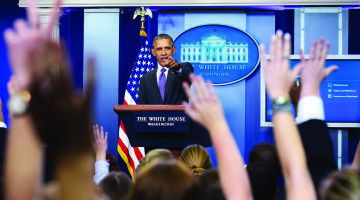By Jacob Solis
Last Tuesday, March 22, the quiet morning commute in Brussels was shattered. More than 30 people were dead after explosions went off in the airport and in the metro not one hour later. Over 200 people were injured in the worst terrorist attack to strike Europe since last year’s attacks in Paris.
Not one week later, another attack struck Lahore, Pakistan. Killing at least 70 and injuring hundreds, the attack was aimed largely at Christians in the city.
And just a week before Brussels, a bomb went off in the middle of Ankara, Turkey’s capital. That attack killed over 30 as well, and left over a hundred wounded. It was the second blast to strike Turkey since the end of February.
But how did it happen and why? European leaders have ramped up their rhetoric and right-wing rallies have become commonplace as unrest grows all across the region, but how does it affect the situation in Syria and the Middle East at large?
Here are the facts.
What we know
In Brussels, two bombs went off inside Zaventem Airport around 8 a.m., near the departure gates, according to a federal prosecutor. It sent ceiling panels crashing down and passengers scattering as panic set in. One hour later, another explosion struck a metro train near the Maelbeek station, itself near the European Union’s headquarters in the heart of Brussels.
After the smoke subsided, 31 people were dead and roughly 270 were wounded, 12 of whom were Americans. On Monday, four victims succumbed to their injuries in the hospital, bringing the total death toll to 35.
In Lahore, a bomb went off in the middle of the Gulshan-i-Iqbal park, where some of Pakistan’s 2.5 million Christians had gathered after Easter services. The suicide bomber, who belonged to a faction of the Pakistan Taliban called Jamaat-ul-Ahrar, detonated his vest near a children’s playground.
Though the attack targeted Christians, only 14 of the victims were actually Christian, according to the Lahore Police Department. The others belonged to Pakistan’s majority Muslim community.
In Turkey, a car bomb exploded near a public bus, killing 37. It was the latest in a string of terrorist attacks to strike the country, though some of the earlier attacks were perpetrated by the Kurdish PKK, though the Kurds have largely focused on military targets.
What we don’t know
As happened after the attacks in Paris and San Bernardino, what new role the west will take in the fight against ISIS remains unclear, though rhetoric has become decidedly more hawkish in the days following the attack, as some have called the attack a declaration of war against the whole of Europe.
In the aftermath of Brussels, French President Francois Hollande said, “Terrorists struck Brussels, but it was Europe that was targeted — and all the world that is concerned.” Turkish President Recip Tayyip Erdogan promised to “bring terrorism to its knees,” after his own capital of Ankara was bombed by ISIS. It’s a rhetoric that has become commonplace as the climate of fear in the Mediterranean continues to grow.
In the immediate aftermath, police patrols have been stepped up in the region, with France alone committing 1,600 police and soldiers to the task of guarding train stations and the borders. These increased numbers also mean that some forces are stretched thin. In Belgium, a planned “march against fear” was canceled after authorities expressed concern that the police could not adequately secure the event.
The unrest in Belgium ticked up again on Sunday when a large group of right-wing protesters descended on a vigil for the victims of the attack. Dressed in black and many with shaved heads, the protesters took over the vigil, “pumping their arms and giving stiff-arm salutes,” according to NPR. Though the protesters have been categorized by many as right-wingers, Agence France-Presse identified them as football hooligans. In any case, riot police were later called in to break up the confrontation.
Whether protesters or hooligans, the disruption seems to be a manifestation of a growing anti-Muslim and anti-immigrant sentiment in the region. In an interview with NPR’s Melissa Block, one of the protesters, Gaetan Alexandre, didn’t mince words when it came to his views.
“It’s clear that in Belgium, we’ve let Islam take root too strongly,” Alexandre said. “We don’t have a problem with Muslims, but we let people radicalize themselves too easily.”
This mood has only increased in popularity as ISIS has struck again and again in the region, and countries like Hungary and Serbia have seized on it, using the migrant crisis and the threat of ISIS to increase their own political autonomy within the European Union.
However, whether or not these nations and others take greater actions to quash ISIS or even the underlying causes behind ISIS remains to be seen.
Jacob Solis can be reached at jsolis@sagebrush.unr.edu and on Twitter @TheSagebrush.












